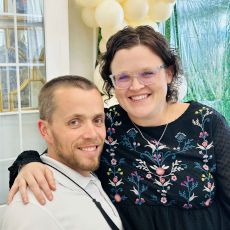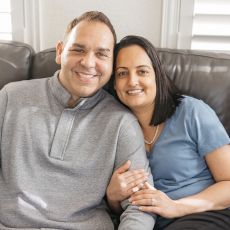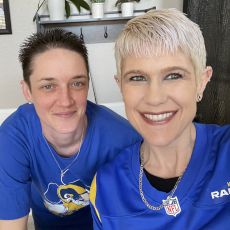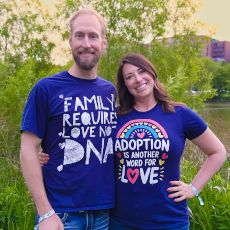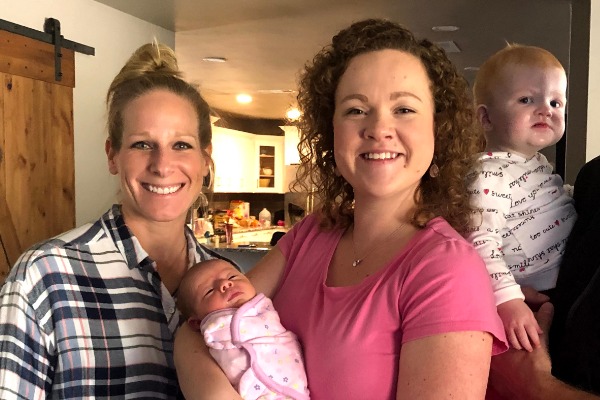How to Cope After "Giving Baby Up" for Adoption [3 Steps]
American Adoptions Offers Post-Adoption Support
You may be surprised to find that you’re not coping with giving a child up for adoption as well as you thought you would.
After all, you should be feeling good about giving a baby up for adoption, right? You put so much thought and love into your decision, and you know your baby is growing up happy and loved with the wonderful parents you picked.
Despite the comfort that you may find in knowing that you made the right choice for yourself and your child in a difficult situation, it’s very common to still have feelings of grief, loss, or other complex emotions after placing a baby for adoption.
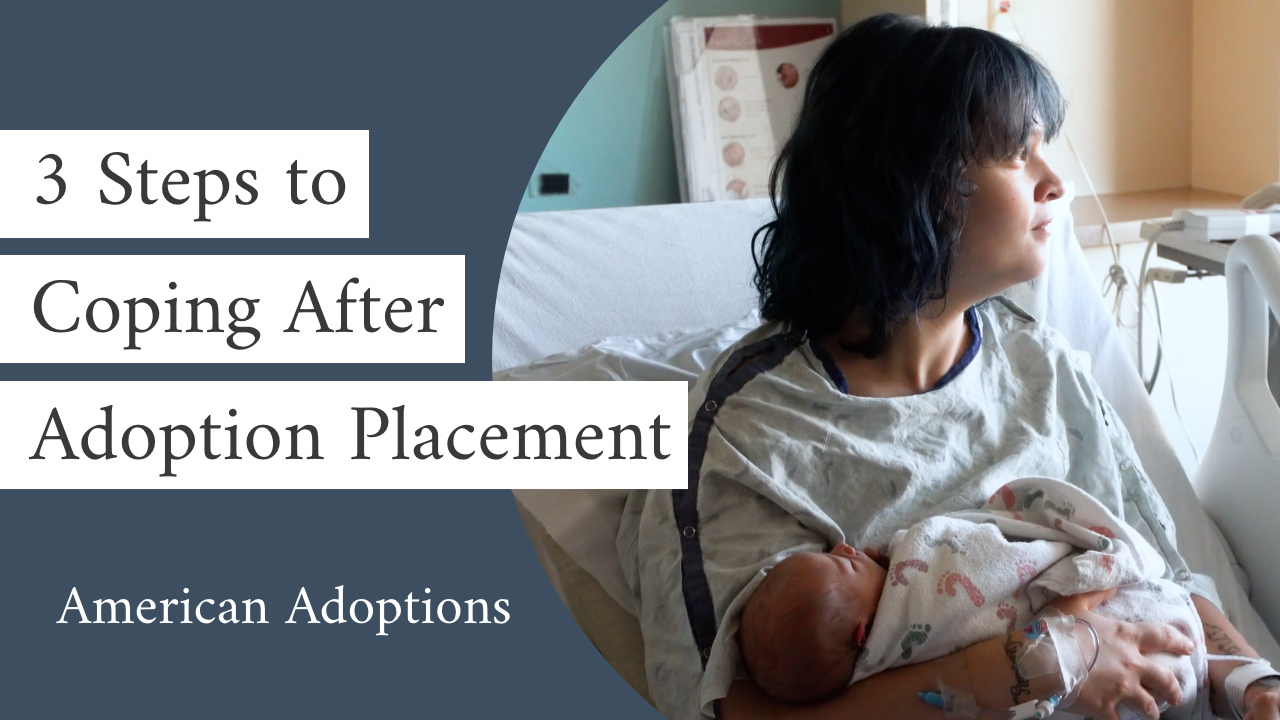
When learning to cope with placing your baby for adoption, there are three steps you can take:
-
Identify what you’re feeling
-
Talk to someone about what you’re feeling
-
Find the joy in your choice
Learning how to deal with giving up a baby for adoption and the emotions that come with it takes time and patience with yourself, but you’ll find that coping with giving a baby up for adoption becomes easier when you allow yourself those things.
Here are some ways to help you cope after placing a baby for adoption and move toward a sense of peace with your adoption decision.
How to Cope with “Giving Your Baby Up” for Adoption
Before you can begin to heal after placing a child for adoption, you may need to change how you look at your adoption decision. Are you using phrases like “giving up” or “giving away” when talking about adoption? If so, you’re probably placing blame on yourself, and that’s unfair.
Using positive adoption language is not only beneficial for adoptees, it’s beneficial for yourself. Get in the habit of saying, “I placed my child with their parents.”
Birth mother Casey knows that her adoption decision is something to be proud of. She did something brave, loving and heroic by placing her twin sons for adoption, and she has a message for other birth mothers who might be feeling guilt or shame for “giving a baby up” for adoption.
“Adoption has a stigma,” she said. “You know, there’s that ignorance that you’re ‘giving up’ the children, when you do not ‘give up’ a human being. In reality, you’re choosing something for them… I know a lot of people try to hide it because they’re ashamed of it, and you shouldn’t be. You made a big and hard decision for what was best for your child, and you should be proud of that.”
If you’re no longer blaming yourself for making what is a brave and selfless decision for your child, then you’re ready to begin coping with your emotions after an adoption placement.
While everyone grieves and heals differently, these three steps are common ways for people to cope with “giving a child up” for adoption:
Helpful Information
Step 1: Figure Out What You’re Feeling
Emotions don’t always show themselves in clear ways — especially if you’re trying to ignore what you’re feeling. Learning how to cope after “giving your baby up” for adoption doesn’t happen overnight, so it’s ok if you’re still grieving.
A good place to start when you’re learning how to deal with “giving a child up” for adoption is to try to figure out what you’re feeling. Feeling sadness and loss doesn’t mean that you regret your decision. Feeling numb or even relieved doesn’t make you cold or “a bad mother.”
However you’re feeling, it’s always good to recognize that those emotions are a normal part of learning how to deal with giving your baby up for adoption and moving towards peace.
Step 2: Talk to Someone
Again, it’s normal to grieve after placing a baby for adoption, and that grieving process will take as long as it takes for each individual — there’s no deadline for healing.
However, it’s important that you don’t isolate yourself. There are other people who have had experiences similar to yours, and who know what it’s like to have to learn how to feel ok giving a child for adoption.
There are always people you can reach out to if you’re feeling alone, including:
-
Your adoption specialist
-
Your child’s parents, depending on your relationship with them
-
A counselor or therapist who has experience with adoption
-
Close friends or family who are supportive of you and your adoption decision
-
Adoption support groups for birth mothers
The adoption specialists at American Adoptions are here to support you 24/7. They can provide a safe space to vent, guidance and emotional support.
Many of our adoption specialists have firsthand experience with the adoption process as birth parents and have been in your shoes before. This firsthand perspective allows us to give you the empathetic support you deserve.
“She was there for me when I didn’t have anybody, and she always knew just what to say,” birth mother Lindsey said about her supportive adoption specialist. “I did have a lot of concerns and fears, and she knew how to talk me through them. She’s someone that’s — even now, three months after I’ve had my baby — probably going to check in on me from time to time. She was just amazing, and I’m so glad that she’s in my life.”
If you’re having difficulty figuring out how to cope with “giving your baby up” for adoption, talk to someone who may have experienced similar feelings, or who can at least listen and support you as you process your post-adoption emotions. You may find that by reaching out to others, you end up helping someone else cope with “giving a baby up” for adoption, too.
Step 3: Find the Joy in Your Choice (While Acknowledging the Sadness)
There is probably plenty to love about your adoption decision. There’s also probably plenty to feel heartache over. It’s ok to feel both.
“After two or three months… I realized they’re where they need to be, I was getting pictures, they were happy,” birth mother after placing her twins for adoption. “Now, it’s almost been a year, and I miss them sometimes — I miss them all the time, and sometimes I wonder what it would have been like if I had kept them — but I know it was the right choice.”
Much of adoption is about joy and loss. This is true for the entire adoption triad:
-
Adoptive parents often experience the grief of infertility or of failed adoption matches before experiencing the joy of welcoming your child into their lives.
-
Adoptees often feel the loss of one family combined with the joy of gaining a different family.
-
Birth families often grieve the loss of a child while celebrating the joy of knowing that child is happy and cared for.
It would be unfair to yourself to ignore the loss that you feel when you’re coping with “giving a child up” for adoption. The painful feelings are just as important as the positive ones.
That being said, any time you feel like you might be getting caught up in sadness, it can sometimes be helpful to try to remind yourself of the positive aspects of your decision. Remember that:
-
You made an important and careful decision in a difficult situation, and it was what was best for you and your child at that time in your life.
-
You’re able to continue pursuing your goals (in your family, career, education and beyond) because you’re not raising this baby.
-
You were able to give the most important gift to a family who had been waiting and desperately wishing for a child. To that family, you will forever be a hero.
-
Your baby will grow up knowing how much they are loved by both their birth and adoptive families, and how they were, and always will be, wanted.
-
Your child will be provided for, loved, cherished and given opportunities that you may not have been able to offer at a certain point in your life.
-
There are always people who will love and support you as you cope after adoption, including your child and their family, your adoption specialist, the community of fellow birth parents and more.
“It was the hardest thing I have ever had to do, but at the same time, I knew it was the right thing for me to do. In my heart he will always be my little boy and my son, even if someone else is raising him,” said Michelle about her adoption experience.
If you ever need post-adoption support or advice on how to deal with “giving up” your child for adoption, you can always contact us online or at 1-800-ADOPTION. If you are looking for other people to cope with about “giving a child up” for adoption, you can ask to talk to Michelle, a birth mother at American Adoptions who knows what it’s like to grieve and heal after placing a baby for adoption.
There’s no guidebook for how to feel better about “giving a child up” for adoption. Adoption is a lifelong emotional journey, and how to deal with “giving up” your child for adoption is up to you. We will be there to support you in any way you need.
Disclaimer
Information available through these links is the sole property of the companies and organizations listed therein. American Adoptions provides this information as a courtesy and is in no way responsible for its content or accuracy.





